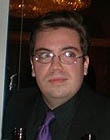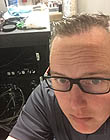|
|
This topic comprises 2 pages: 1 2
|
|
Author
|
Topic: Sound Rack Power Down Procedure
|
|
|
|
|
|
|
|
|
|
|
|
|
|
|
|
|
|
|
Barry Floyd
Phenomenal Film Handler

Posts: 1079
From: Lebanon, Tennessee, USA
Registered: Mar 2000
|
 posted 02-18-2011 02:57 PM
posted 02-18-2011 02:57 PM





At our church, we have a automated power sequencer that steps through the "powering on" and "powering off" of the various equipment in the sound, lighting and video booth. The mixing consoles, rack components, etc. are powered on first, the crossovers and equalizers are powered on next, and the amps for the auditorium are powered on last. When "powering off" the system, one push of a button and it automatically does everything above in the reverse order.
Our amps are located in a closet upstairs behind the stage, so it's remotely hardwired from the booth.
Ours is actually activated with a key lock switch as opposed to a button - mainly to keep "the people who say they know how to run a sound system" from messing with it.
| IP: Logged
|
|
|
|
|
|
|
|
|
|
|
|
|
|
All times are Central (GMT -6:00)
|
This topic comprises 2 pages: 1 2
|
Powered by Infopop Corporation
UBB.classicTM
6.3.1.2
The Film-Tech Forums are designed for various members related to the cinema industry to express their opinions, viewpoints and testimonials on various products, services and events based upon speculation, personal knowledge and factual information through use, therefore all views represented here allow no liability upon the publishers of this web site and the owners of said views assume no liability for any ill will resulting from these postings. The posts made here are for educational as well as entertainment purposes and as such anyone viewing this portion of the website must accept these views as statements of the author of that opinion
and agrees to release the authors from any and all liability.
|

 Home
Home
 Products
Products
 Store
Store
 Forum
Forum
 Warehouse
Warehouse
 Contact Us
Contact Us




 Printer-friendly view of this topic
Printer-friendly view of this topic















